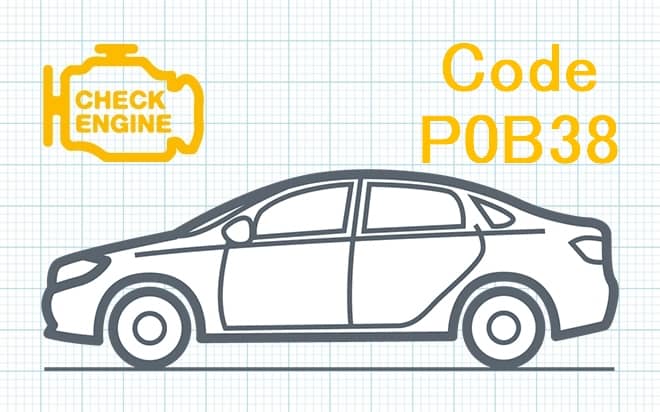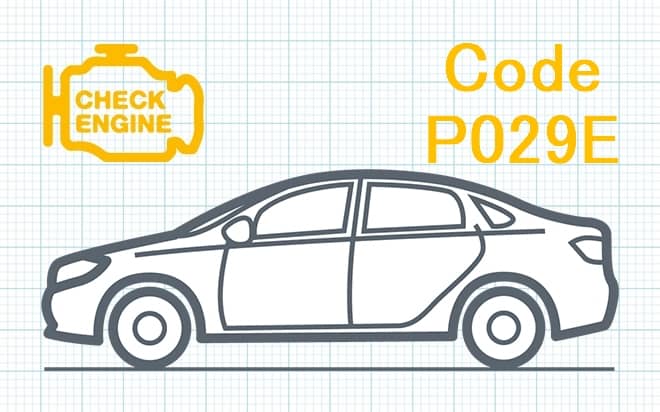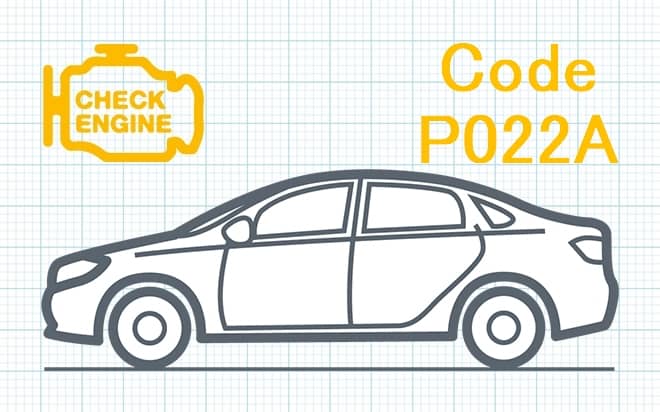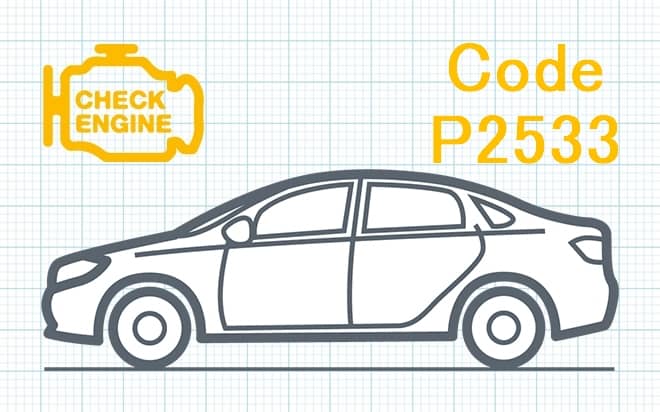Fault code P200B is called “Intake Manifold Runner Control (IMRC) Performance (Bank 2)” but in different programs it may be called differently. This fault designation applies to all vehicles equipped with OBD-II.
Technical description and explained code P200B
This Diagnostic Trouble Code (DTC) is a general powertrain code. Error P200B is considered a general code because it applies to all makes and models of vehicles. Although the specific repair steps may vary slightly depending on the model.
The manifold flaps are designed to increase or decrease the rate at which the intake air flows through the intake manifold. The flaps are adjusted by an actuator.
The degree of opening depends on engine speed and other operating conditions. Such as throttle position and speed. Also, environmental factors such as atmospheric pressure and ambient temperature.
A high degree of control is required for the system to work properly. Code P200B refers to both mechanical failure and electrical open circuit actuator control circuits. But vacuum leaks, can also cause this code in some cases. Because the damper position sensor may be giving a signal that does not correspond to the desired position.
When an intake manifold actuator control valve (IMRC) is used in the system, the PCM monitors the actual position of the swash plates. If the control module does not see a significant change in manifold air pressure or temperature from the sensor (MAP). And understands that the desired flap position change is not occurring, then code P200B will be stored.
In some vehicles, this code is stored and the warning light comes on at the first failure cycles. But more often, several fault cycles occur before the warning light comes on.
When error P200B occurs, the swirl valves themselves are of the greatest concern. The reason is that they are inside the intake manifold. If they fail, parts can fall off and get inside the engine. For example, fallen screws entering the cylinders cause very serious damage.
Symptoms of vehicle malfunctions
The main signal that an error P200B has occurred is the Malfunction Indicator Lamp (MIL) is also known as the CheckEngine Light.
It can also be warning signs such as:
- Check engine control lamp on the control panel will light up (the code will be recorded in the ECM memory as a fault).
- Poor engine operation at idle.
- Reduced torque, and loss of power at low engine speeds.
- Jerky and unstable engine operation during acceleration.
Fault P200B is considered serious, as there is a possibility that a damaged inlet manifold geometry damper or its parts may enter the engine. This can lead to serious damage and even complete engine failure.
Factors that can cause this error code
The error code P200B can mean that one or more of the following problems have occurred:
- Faulty inlet manifold geometry adjustment solenoid valve.
- Damaged, shorted or corroded wires and connectors.
- Faulty inlet manifold geometry adjustment damper (Bank 2).
- Dirty swirl flaps.
- Damaged vacuum lines.
- Sometimes faulty PCM module is the cause.
How to fix or reset OBD-2 code P200B
Some suggested steps for troubleshooting and fix the error code P200B:
- Connect the OBD-II scanner to the vehicle’s diagnostic connector and read all stored data and error codes.
- Clear the error codes from the computer memory.
- Test-drive the vehicle to see if the error appears again.
- If the code appears again, visually inspect the electrical wires, connectors, and vacuum lines for wear and damage.
- Visually inspect the position sensor and inlet manifold geometry adjustment solenoid valve for damage.
- Check the operation of the inlet manifold geometry control solenoid valve and damper using a manual vacuum pump.
- Measure the voltage in the control circuit using a multimeter.
- Repair or replace any damaged or defective components.
Diagnose and repair of problems
Perform a thorough visual inspection of all wiring and lines. Look for damaged, burned, disconnected or corroded wiring or connectors. Make repairs if necessary.
Inspect all vacuum lines for cracks, splits, hardening, or perforation. Make sure that all connections are tight and that all vacuum check valves allow air flow only in the direction shown. Make repairs as needed.
If code P200B remains, but there is no visible wiring damage, test with a voltmeter for resistance, ground, and reference voltage. Compare all readings obtained with the values given in the manual. To ensure that all electrical values are within the ranges specified by the manufacturer.
Check the position switch and replace it if necessary. Observe the vacuum actuator to see if the vacuum is holding. If the vacuum is dropping, albeit slowly, then the actuator is defective and must be replaced.
Remove any codes after replacing it, test drive it to see if the code comes back.
If you have an electric actuator, use a scanner to command the flaps to fully open from the fully closed position several times. To check for an unstable condition. The signal voltage displayed should always be the same in both the fully open and fully closed positions, no matter how many times the system is activated by the scanner.
By following these steps, you have almost certainly solved the P200B code. But if the error persists, a faulty PCM may be causing the problem. However, PCM failure is an extremely rare phenomenon, the most likely cause of which is an intermittent electrical malfunction.
On which vehicles does this problem occur most frequently
Fault code P200B can occur on different vehicles but there are statistics on which brands this occurs most often. Here is a list of some of them:
- Hyundai
- Kia
- Mercedes-Benz (Sprinter, W203)
Fault code P200B can sometimes be found with other errors. The most common are the following: P200A, P2004, P2006, P2008, P2009, P2010.





